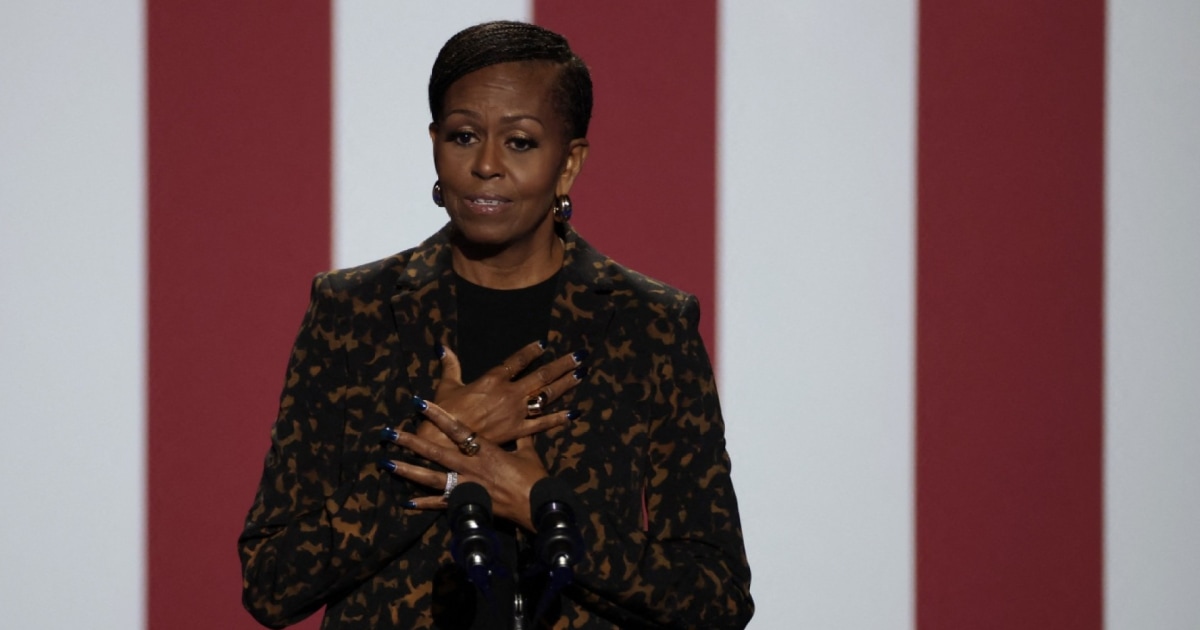The Importance of Women’s Health: Insights from Michelle Obama and Current Issues
In a world where women’s health is increasingly at the forefront of public discourse, Michelle Obama’s recent speech has reignited critical conversations about the implications of political decisions on women’s health issues. Speaking at a rally for Vice President Kamala Harris in Kalamazoo, Michigan, Obama emphasized the urgent need for men to understand the stakes involved in the upcoming election, particularly regarding women’s health. This article explores the key themes from her speech, the current landscape of women’s health issues, and the broader implications for society.
Michelle Obama’s Call to Action
At her first campaign stop for the 2024 election, Michelle Obama delivered a powerful message urging men to take women’s health seriously. She articulated that the upcoming election could have life-or-death implications for women, highlighting how political leadership directly influences healthcare policies. Obama’s passionate plea was not just a call for awareness but a rallying cry for collective action. She underscored the importance of understanding how decisions made in political arenas affect the health and well-being of women and their families.
The Stakes of Political Decisions
The implications of political decisions on women’s health are profound. Issues such as access to reproductive healthcare, maternity care, and cancer treatment are often dictated by the prevailing political climate. For instance, recent court decisions, such as those in Alabama regarding the movement of frozen embryos, showcase the complexities and emotional weight of reproductive rights. As women navigate these challenges, the need for supportive policies becomes increasingly clear.
Personal Stories: The Human Element
In addition to political discourse, personal stories play a crucial role in shaping public understanding of women’s health issues. Danielle Fishel, known for her role in "Boy Meets World," recently shared her breast cancer surgery journey, shedding light on the emotional and physical challenges faced by many women. Such narratives not only raise awareness but also inspire others to advocate for their health and seek necessary medical care.
Addressing Menopause and Other Health Concerns
The documentary "The M Factor" has emerged as a vital resource in promoting conversations around menopause, a topic often shrouded in stigma. By encouraging open dialogue, the documentary aims to empower women to embrace this natural phase of life while advocating for better healthcare options. Similarly, discussions surrounding heavy toxic metals found in popular tampon brands highlight the need for transparency and safety in women’s health products.
The Crisis in Maternity Care
The U.S. maternity care crisis is another pressing issue that demands attention. With rising maternal mortality rates and inadequate support for new mothers, the healthcare system faces significant challenges. Recent reports have raised concerns about the quality of care provided to pregnant women, emphasizing the need for systemic changes to ensure safer and more supportive environments for childbirth.
Legislative Battles: IVF and Abortion Rights
The political landscape surrounding reproductive rights continues to evolve, with recent legislative battles over IVF protection and abortion access. Senate Republicans blocking an IVF protection bill and the Supreme Court’s decisions regarding abortion pills reflect the contentious nature of these issues. As advocates push for policies that support women’s reproductive choices, the importance of informed voting and civic engagement cannot be overstated.
The Role of Advocacy and Community
As women share their experiences and advocate for their health, community support becomes essential. Initiatives like the "50 Over 50" list by Forbes celebrate the achievements of women over 50, showcasing their contributions and resilience. Such recognition fosters a sense of community and encourages women to continue advocating for their health and rights.
Conclusion: A Collective Responsibility
Michelle Obama’s speech serves as a reminder that women’s health is not just a women’s issue; it is a societal concern that requires collective responsibility. As we approach the 2024 elections, it is crucial for everyone—regardless of gender—to engage in conversations about women’s health, understand the implications of political decisions, and advocate for policies that prioritize the well-being of all individuals. By doing so, we can create a healthier, more equitable future for everyone.
